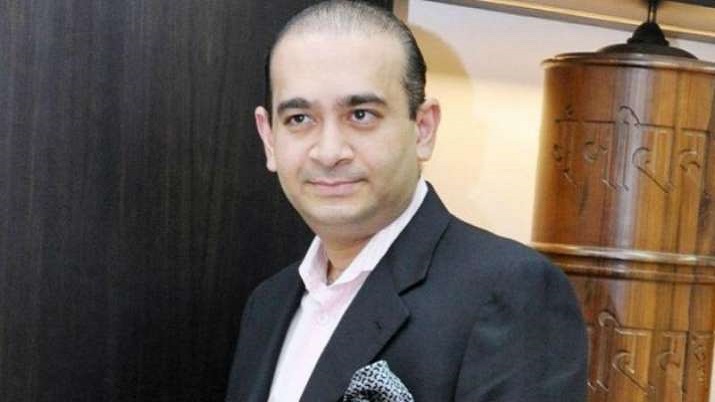
Nirav Modi is the subject of two sets of criminal proceedings, in which the CBI case pertains to large-scale fraud on PNB involving fraudulent undertaking (LoU) or loan settlement, and the ED case relating to laundering. proceeds of that fraud.
A British court will on December 14 hear an appeal filed by fugitive diamantaire Nirav Modi against extradition to India from the UK on charges of fraud and money laundering in connection with the estimated USD 2 billion Punjab National Bank (PNB) scam. will have to face.
The 50-year-old jeweler, who has been behind bars at Wandsworth Prison in south-west London since his arrest in March 2019, was allowed to appeal against the Westminster Magistrates Court’s extradition order on grounds of mental health and human rights.
High Court Judge Martin Chamberlain ruled on 9 August that the arguments presented by Modi’s legal team regarding his “severe depression” and “high risk of suicide” were debatable in a substantial hearing.
“The matter has been fixed for one-day hearing on December 14,” an official of the High Court said, referring to the adequate hearing.
Britain’s Crown Prosecution Service (CPS), which represents Indian officials in court, confirmed it would oppose the appeal from the Indian government.
The appeal against District Judge Sam Goozy’s February decision to send the case to the Home Secretary was allowed to appeal on two grounds – to hear arguments under Article 3 of the European Convention on Human Rights (ECHR) as to whether it was “unjustified”. or oppressive”. The extradition of Nirav Modi on account of his mental condition and section 91 of the Extradition Act 2003, also deals with mental unsoundness.
“I will not restrict the grounds on which those grounds can be argued, although it seems to me that special consideration should be given to whether the judge had done wrong to arrive at his conclusion, with regard to the seriousness of the appellant. given the evidence [Modi’s] depression, high risk of suicide and the adequacy of any measure capable of preventing successful suicide attempts at Arthur Road Prison,” Justice Chamberlain’s August ruling notes.
The adequacy of measures capable of preventing “successful suicide attempts” at Arthur Road Jail in Mumbai, where Modi is to be detained on extradition to India, also comes under debate.
Admissibility of evidence provided by the Enforcement Directorate (ED) and the Central Bureau of Investigation (CBI) and permission to appeal against the extradition order of UK Home Secretary Priti Patel was denied on all other grounds. The High Court also noted that the District
The judge’s approach to identifying the prima facie case in the estimated $2 billion Punjab National Bank (PNB) fraud case was “correct”.
“Given the trial to which he was to apply, and the quantum of evidence relied on against the appellant [Modi], he was entitled to conclude that each request disclosed a prima facie case,” the High Court judgment notes.
Modi is the subject of two sets of criminal proceedings, the CBI case relating to large-scale fraudulent letters (LoUs) or loan settlements on PNB, and the ED case relating to laundering of proceeds. of that fraud.
He also faces two additional charges of “disappearance of evidence” and intimidation of witnesses or “criminal intimidation to cause death”, which were added in the CBI case.
If Modi wins the December appeal hearing in the High Court, he cannot be extradited unless the Indian government is successful in obtaining permission to appeal to the Supreme Court on an issue of law of public importance.
On the other hand, if he loses the appeal hearing, Modi can approach the Supreme Court on the issue of law of public importance to apply to the apex court against the High Court’s decision within 14 days of the High Court’s decision. . However, it includes a higher limit as an appeal to the Supreme
Court can be created only if the High Court has certified that the matter involves law of general public importance.
Finally, after all avenues in UK courts have been exhausted, the diamond trader can still seek a so-called Rule 39 injunction from the European Court of Human Rights.
Read also: Rs 500 crore assets of Nirav Modi firms restored to PNB
Read also: New York bankruptcy court dismisses petition filed by Nirav Modi, associates
.